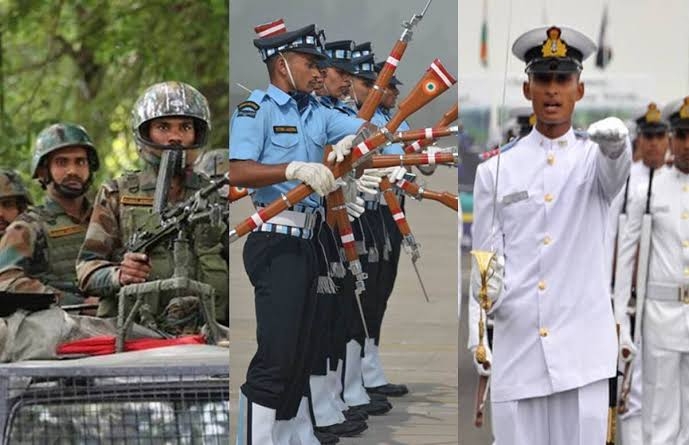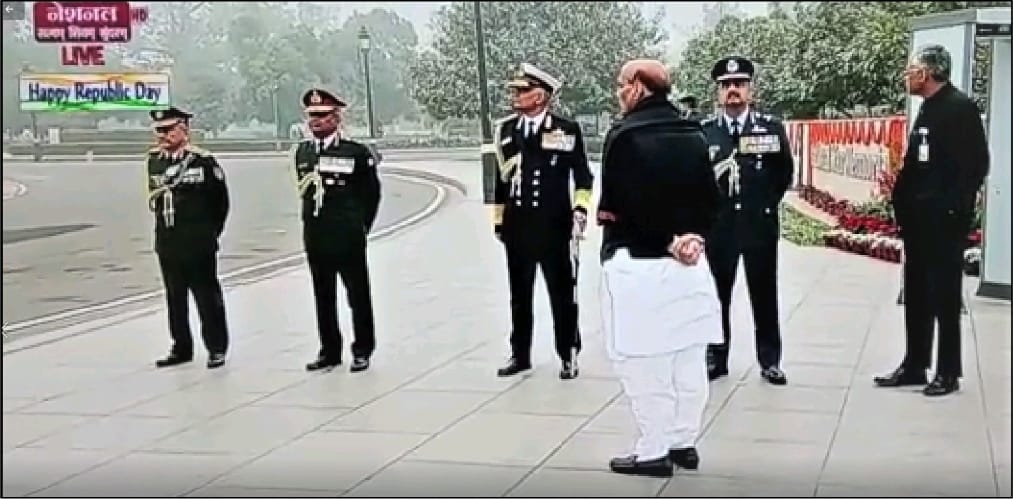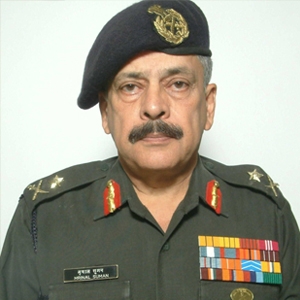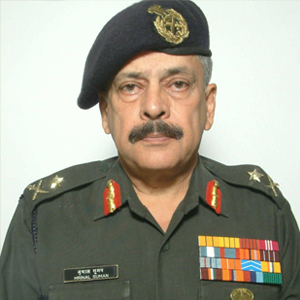A Nation’s Duty towards its Soldiers
All great nations are distinguished by the esteem in which they hold their military. Many are of the view that the secret of the British success lies in the fact that it always values its soldiers, unlike most countries who forget them the day the war is over.

Many will find the title anomalous – one is used to hearing about the duties of the soldiers to their nation, and not the other way around.
All great nations are distinguished by the esteem in which they hold their military. Many are of the view that the secret of the British success lies in the fact that it always values its soldiers, unlike most countries who forget them the day the war is over.
It honours its war heroes by erecting their statues at prominent places, like Nelson’s Column at Trafalgar Square. Britain was the first country to recognize obligation of the state to disabled army veterans through a statute nearly four centuries ago.
It is a well-known fact that no soldier ever comes out unscathed from a battlefield or a counter-terrorist encounter. His body may escape physical injuries but his psychology, sensibilities and outlook suffer traumatic damages. His personality undergoes transformation. He is never the same human being.
It is often said that the bombs in a war whack both – bones and brains. PTSD (post-traumatic-stress-disorder) is a common battle fatigue syndrome, resulting from traumatic battle-field experiences. They need help.
Britain’s Armed Forces Covenant
Recognition of a special bond of mutual obligations between the state and its armed forces dates back more than 400 years: a 1593 Elizabeth I statute provided for a weekly tax, so that disabled army veterans could be looked after till their end.
In 2000, a paper titled 'Soldiering – the Military Covenant' was published by the Army. It set out the obligations on the soldier to make personal sacrifices in the service of the nation; and, simultaneously it stated that the armed forces must be sustained by the nation.
A bill, setting out how servicemen and women should be treated, received Royal Assent in on 15 December 2021. It contained the ‘Armed Forces Covenant’, enshrining the nation’s duty to the armed forces.
"The government has no higher duty than the defence of the realm, and the nation has no greater obligation than to look after those who have served it," Defence Secretary Liam Fox told the House of Commons.
He added that ‘The Armed Forces Covenant’ was a simple and timeless statement of the moral obligation that the nation owes to its soldiers.
The Covenant recognizes and honours the ‘unique service’ rendered by members of the armed forces and their families. It is a statutory agreement and a solemn commitment under which the state pledges a duty of care towards its military personnel, in return for the sacrifices they make.
The Covenant strives to support the soldiers in the fields of family welfare, education, healthcare, financial help, general well-being, post retirement employment and other services. It also helps them to start a new career.
The United States
Although the system of extending assistance to war-wounded soldiers was introduced during the seventeenth century, it remained a local and fragmented initiative. Starting with the establishment of domiciliary and medical facility, provision of pensions for the veterans and their widows was introduced by the Federal Government. After the Civil War, the system was further streamlined.
World War I saw expansion of the benefits for the veterans. Three different Federal agencies were constituted – Veterans Bureau, Bureau of Pensions of the Interior Department and National Home for Disabled Volunteer Soldiers.
In 1930, the Department of Veterans Affairs (VA) was established as an independent agency to coordinate the activities of the three bureaus. President Bush upgraded VA to a cabinet-level executive department of the federal government in 1989, under Secretary Veterans Affairs.
VA claims to be driven by the promise made by President Lincoln, “To care for him who shall have borne the battle, and for his widow, and his orphan”. The vision statement reads – “To provide veterans the world-class benefits and services they have earned — and to do so by adhering to the highest standards of compassion, commitment, excellence, professionalism, integrity, accountability and stewardship.”
VA is charged with integrating life-long healthcare services to eligible military veterans at 1,700 VA medical centers and outpatient clinics located throughout the country. The field facilities are spread throughout the nation, administered by its three major line organizations: Veterans Health Administration, Veterans Benefits Administration and National Cemetery Administration.
VA has a total of 18 high ranking officials, including six women. Each official is appointed by the President or confirmed by the US Senate. Almost all appointees are either veterans or belong to the families of soldiers. VA has since grown into the second largest Federal department with close to 3 lac employees.
The Indian Experience
Historically, India does not have a culture of valuing its military. Neglect of soldiers is the primary reason why India fell to foreign armies. Look at the treatment meted out to India’s tallest military leader, Field Marshal Sam Manekshaw, the architect of India’s greatest victory ever. It took the government decades to determine and release his dues.
India has not found him worthy of its highest national honour ‘Bharat Ratna’, whereas the roll of honour is packed with lesser dignitaries. Worse, no political leader thought it necessary to attend his funeral. In Britain and the US, heads of the State with full national leadership would have made it a point to be present to pay a grateful nation’s respects.
Fortunately, during the last eight years, the country has been witnessing a discernible change of heart. In February 2019 – after a wait of seven decades – New Delhi got a befitting war memorial to honour independent India’s martyrs.
The Tomb of the Unknowns at Arlington in Washington, Arc de Triomphe in Paris and the Cenotaph in London are admired by all Indian visitors. Yet, the absence of a suitable war memorial in New Delhi did not appear odd to them. Surprisingly, it did not even hurt the conscience of the nation.
In the recent past, the current government has taken a number of steps to honour the soldiers. On 23 January 2023, for the first time in the history of Independent India, the government named 21 largest unnamed islands of Andaman & Nicobar Islands after the Param Vir Chakra awardees. It was a highly welcome and much appreciated initiative.

The Defence Secretary at the National War Memorial on Republic Day 2023
(Note the supercilious demeanour with hands in the pockets)
Perhaps, it is the attitude of the bureaucrats that causes maximum hurt to the Indian soldiers. Instead of adopting a sympathetic approach, they become instrumental in denying dues to soldiers, veterans and even widows. They lack compassion.
The aggrieved have to knock at the doors of the courts for justice. Every time a soldier/veteran/widow wins the case, bureaucrats take it as a personal affront. Instead of accepting the court’s verdict with grace, they appeal to higher courts, even for paltry sums. It is a sad state of affairs. Although the Ministers have been promising an end to this endless litigation, no change is visible on ground.
Does India Need an Armed Forces Covenant Bill?
Vide his letter of 28 July 2011, Rajeev Chandrasekhar, a member of Rajya Sabha, sought to introduce a private member’s bill titled ‘Armed Forces Covenant Bill 2011’ in the ensuing session of the Rajya Sabha. The Bill’s stated aim was – “To enshrine in law a Covenant – a commitment between the people of India and the armed forces community (serving as well as retired) and their families (including bereaved families), pledging a duty of care and improving support towards them in return for their bravery and sacrifices made for protecting the nation; to ensure that they face no disadvantage compared to other citizens in the provision of public and commercial services, and for matters connected therewith or incidental thereto.”
It was a very exhaustive Bill that envisaged a statutory commitment that soldiers, veterans and their families will be provided with medical support; education; good quality and affordable accommodation; a comprehensive compensation system; maintenance for disabled soldiers and bereaved families; reservation in civilian jobs; and other measures.
Many question the need for a Covenant.
They opine that an earnest and compassionate regime needs no statute to look after its armed forces. There is no doubt that it is the sincerity of the government of the day that is of essence and not the legislated undertakings.
However, a Covenant is a demonstration of a grateful nation’s commitment to the well-being of its soldiers and their families. A moral obligation always gets strengthened when duly supported by legislation.
More importantly, the Bill proposed by Rajeev Chandrasekhar contained the following key provisions:-
- Right to claim civil damages against the Ministry where the personnel believe that the injury, illness or death was a result of negligence on the part of the Ministry.
- Sufficient time limit for claiming compensation and provision for extending the time limit in genuine cases like illness.
- Establishment of an overarching Advisory Committee to advise the Ministry on matters relating to pay and perks, pensions and compensation. It would consist of the Chief of the Defence Staff (CDS), three Chiefs, two representatives of the Ministry and six representatives of the ex-servicemen’s organisations recognized by the Ministry.
- Establishment of the Armed Forces Grievances Redressal Commission to look into all grievances submitted to it by serving or retired defence personnel; form schemes for proper rehabilitation of the soldiers discharged at young ages and recommend changes in rules and regulations. It would have a retired judge of Supreme/High Court as the Chairperson. CDS, three Chiefs and the Defence Secretary would be its members.
- The Minister of Defence would prepare an annual Armed Forces Covenant Report and place it before each house of parliament. It shall, inter alia, cover progress made in the fields of health care, education and housing.
Unfortunately, the Bill became a victim of petty politics and never saw the light of the day.
Conclusion
It will not be out of place here to recall the speech of President Obama at the Veterans of Foreign Wars Convention at the Phoenix Convention Center on 17 August 2009. He said, “You have fulfilled your responsibilities. And now a grateful nation must fulfill ours.” He termed America's commitment to its veterans as sacred bonds and a sacred trust Americans are honour bound to uphold.
India survives today because, as General Sir John Hackett said, “A soldier places his body between those of the citizens of his country and those who are attempting to destroy them”.
Soldiers are deployed on the lofty heights of the Himalayas and are tasked to undertake operations in the highest battlefield in the world. In addition to bodily injuries, many soldiers suffer from acute psychosomatic and mental duress. These personnel definitely deserve support of the government to be able to lead a life of dignity.
Indian soldiers are highly sentimental by nature. Their dedication to duty, loyalty to the nation and willingness for the supreme sacrifice are driven less by material considerations and more by an overwhelming urge to earn love and respect of their countrymen.
A grateful nation’s recognition of their contribution to national security acts as the strongest motivator. It is often said that any country that does not care for its soldiers, loses moral right to expect them to die for its security.



